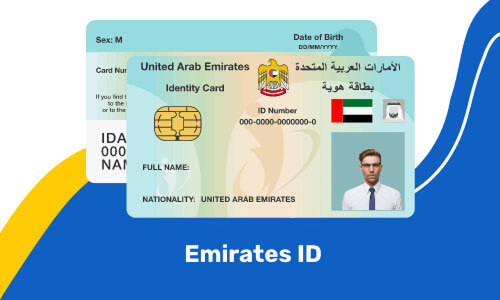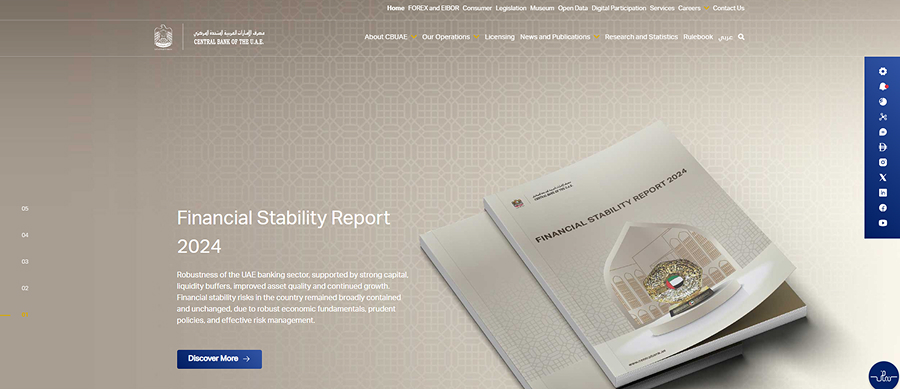The UAE is fast becoming a global fintech hub, but to legally process payments, you need a payment service provider license. That’s the gate you must walk through if you want to move money, run a payment gateway, or launch a wallet in this market. Without it, doors stay shut — banks won’t partner with you, investors keep their distance, and regulators won’t let you operate.
Think of the PSP license as both a shield and a passport. Shield, because it proves your systems meet the capital, security, and compliance rules that keep customers safe. A passport, because it gives your company the legal right to join the UAE’s rapidly expanding payments ecosystem.
In the pages ahead, we’ll break down exactly what a payment service provider license in the UAE covers, why it matters, and how to register as a PSP in the UAE so you can scale here with confidence.
What Is a Payment Service Provider License in the UAE?
Let’s be clear: in the UAE, you can’t just roll out an app, plug in a payment gateway, and start moving money. To touch a single dirham on behalf of merchants or customers, you need a payment service provider license. No license, no business — it really is that black and white.
This license comes from the Central Bank, and it’s their way of keeping the industry clean. You get to handle transactions only if you prove your systems are safe, your capital is solid, and your compliance people know what they’re doing. Annoying? Maybe. But it’s also the reason customers here actually trust PSPs.

Payment Service Provider Definition and Role in the UAE Market
So what is a payment service provider (PSP)? Imagine you’re buying something online. You hit “pay,” the screen spins for a second, and suddenly, the merchant has their money. That smooth moment is the PSP doing the heavy lifting — checking cards, routing funds, blocking fraud, and making sure the bank approves.
In the UAE, that role is magnified. Cash once ruled this area, but now people expect Apple Pay at the coffee shop, instant remittances, and smooth e-commerce checkouts. The PSP keeps everything running while regulators demand tight security. To legally play that role, get a PSP license in the UAE.
Payment Service Provider Examples
If you want payment service provider examples, picture Stripe or Adyen in global markets. Locally, think of the banks’ in-house processors, wallet apps for expats sending money home, or fintechs giving small shops the ability to accept card payments.
It doesn’t matter if you’re powering a giant marketplace or a neighborhood café. If you’re handling payments, the license is the line between being seen as a trusted partner or a risky operator. In this market, no investor, no bank, and no serious client will touch you without it.
Why Apply for a Payment Service Provider License in the UAE?
The UAE has positioned itself as a crossroads for finance, trade, and technology. But none of that matters for your fintech if you can’t legally move money. A payment service provider license is what flips that switch. It gives you permission to operate, but more than that, it gives you credibility in a market where regulators, banks, and customers are quick to ask: Are you licensed?
For an international entrepreneur or a startup founder, applying isn’t just about following rules. It’s about unlocking doors. Investors hesitate without proof of compliance. Banks won’t give you a settlement account without it. And merchants, the lifeblood of your business, prefer partners they can trust. The PSP license UAE signals that you’ve cleared those hurdles.
Benefits of Payment Service Provider License for Fintechs and Startups
So why go through the effort? Because the benefits pile up fast:
- Market entry – Payment solutions are illegal without a license. With it, you’re inside one of the fastest-growing fintech markets in the region.
- Trust with banks and partners – Licensed PSPs can secure settlement accounts, card network access, and banking partnerships that unlicensed players can’t touch.
- Investor confidence – When you show you’ve met Central Bank requirements, you prove you’re serious. That reassurance makes fundraising easier.
- Customer credibility – Consumers in the UAE have been taught to look for licensed providers. Having that status on your profile is the difference between skepticism and adoption.
- Room to grow – A license doesn’t just cover one service. You can add wallets, online payments, and merchant services under the same regulation after approval..
Thus, a UAE payment service provider license goes beyond survival. Being taken seriously as a fintech. It shows regulators, partners, and customers you're building something long-term.
How to Register as a Payment Service Provider in the UAE?
UAE payment service provider licenses are not easy to obtain online. The Central Bank evaluates your business's ability to handle others' money. Consider it a stress test: they examine your finances, technology, people, and compliance under pressure. If you’re ready for that, here’s how the process really plays out.
Step-by-Step PSP License Registration Process
- Lay the groundwork. Don’t even think about applying until you’ve mapped out exactly what services you’ll offer — online payments, merchant accounts, wallets, remittances. The Central Bank wants clarity.
- File your application. Most providers go straight through the Central Bank. Free zones can add structure, but the national license is what actually counts.
- Brace for scrutiny. They’ll dig into ownership, capital, your compliance policies, and even your tech stack. Expect questions and be ready to defend your choices.
- Testing time. Fraud controls, transaction monitoring, and IT security must pass inspection.
- License in hand. Only after you clear every hurdle will the Central Bank issue your PSP license in the UAE. Don’t expect it in weeks; think months.
Required Documents and Eligibility Criteria
Here’s the paperwork you’ll need lined up:
- Company formation docs and trade license
- Shareholder and director details, with IDs and CVs
- Business plan and financial forecasts
- Proof of minimum capital (set by license type)
- AML/CFT and compliance frameworks
- IT security and data protection policies
- A local office lease in the UAE
Eligibility boils down to three things: capital, compliance, and commitment. If your balance sheet is thin, your compliance is a template, or you’re just testing the waters, approval is unlikely.

Where to Apply: Central Bank of the UAE and Free Zones
UAE Central Bank is the gatekeeper. You can't provide UAE payment services without a license. Free zones like DIFC and ADGM attract investors, offer fintech sandboxes, and let international founders feel at home. However, free zone paperwork won't get you past the Central Bank. At best, it supplements the national license.
So if you’re planning to register as a PSP in the UAE, expect a demanding process. It’s not designed to be easy — it’s designed to make sure only serious, well-prepared players enter the market.

Want to learn more about UAE business setup services?
How to Get a PSP License in the UAE: Requirements and Costs
If you’ve come this far, you already know the UAE is serious about payments. And here’s the catch: the Central Bank doesn’t hand out a payment service provider license in the UAE because you have a slick app or a polished pitch deck. They want to know you’re built to last. That means money in the bank, compliance that works outside of PowerPoint, and a footprint in the country you’re asking to serve. Let’s be real — this part of the journey is less about vision and more about proving you’re not a liability.
PSP License Requirements: Capital, Compliance, and Local Office
The first test is capital. You can’t talk your way around it. Regulators want to see that you’ve got enough cash to survive a bad quarter, or worse, a fraud incident. The exact numbers shift depending on what services you plan to offer, but the principle doesn’t change: if you’re underfunded, don’t bother applying.
Then comes compliance. This is where many founders fall flat. A copy-pasted AML policy won’t cut it. The Central Bank wants to see a compliance officer who actually has authority, frameworks that are written for your business model, and systems that spot suspicious activity in real time. They’ll ask tough questions, and if your answers sound vague, they’ll stop your application in its tracks.
And finally, presence. You need a physical office in the UAE. Not a co-working space with your name on the door, but a place that shows you’re invested here for the long run. They want accountability, not tourists.
These three pillars — capital, compliance, and local presence — are what your application stands on. If one cracks, the whole thing falls.
PSP License UAE Costs and Renewal Fees
Now let’s talk money. Beyond the capital deposits, there are fees: application, supervisory, and renewal. These aren’t outrageous by global standards, but they add up. And then there’s the hidden layer — hiring compliance staff, maintaining tech systems that regulators approve of, and paying for a proper office. Too many startups focus on the upfront fee and forget the ongoing burn.
Renewals are another reality check. Your PSP license usually runs for a year, and every renewal is like a mini-audit. You’ll need to show updated financials, proof of capital, and fresh compliance documents. Yes, the renewal fee is smaller than the initial one, but missing it means your license lapses, and suddenly you’re locked out of the market until it’s fixed.
The real cost isn’t just in dirhams. It’s in discipline — the need to keep every part of your operation inspection-ready, every single year.
Common Challenges in PSP License Applications
If you’re picturing this as a quick sprint, reset your expectations. Approval rarely comes in weeks; it usually drags into months. Regulators will come back with questions — sometimes the same ones, worded differently — just to see if your answers stay consistent.
Other common stumbles: incomplete ownership disclosures, vague business plans, and tech that looks impressive in a demo but falls apart under scrutiny. The Central Bank doesn’t care how pretty your UI is; they care if your fraud controls actually work.

But the biggest pitfall is mindset. Too many founders treat licensing like paperwork. It isn’t. It’s the regulator asking, Can we trust you with the flow of money in this country? If you can’t answer that with capital, compliance, and commitment, then the answer is no.
To get a PSP license in the UAE is to prove you belong in the ecosystem. It’s tough by design. But if you clear it, you earn more than just a license — you earn the trust of banks, investors, and merchants who won’t even open the door without it.
What Services Are Covered Under a PSP License in the UAE?
A payment service provider license in the UAE is broad enough to cover most of the services fintechs and payment companies want to launch. But it isn’t a blank cheque — it gives you permission to operate in specific areas, while keeping some activities off-limits. Understanding what’s included (and what’s not) will save you a lot of back-and-forth with regulators.
Merchant Services and Online Payments
This is the bread and butter. With a PSP license, you can help merchants accept card payments, run online checkouts, or process recurring subscriptions. You become the link between the business, the bank, and the customer. Without this license, even handling basic e-commerce payments is illegal.
Digital Wallets, Mobile Payments, and Remittances
A PSP license also opens the door to building and running wallets and mobile payment apps. Want to let users top up, store balances, or send money abroad? That sits under the same umbrella. UAE remittances are huge, and being licensed lets you tap into that market while complying with anti-money laundering laws.

Restrictions and Activities Not Allowed
What the license doesn’t allow is just as important. PSPs can’t issue credit, operate like a full bank, or speculate with client funds. The regulator draws a sharp line: you move money safely, you don’t take on risks outside your scope.
For any payment service provider in the UAE, knowing these boundaries is key. It’s what keeps you trusted and in business.
How Does Consulting.ae Help With Getting a PSP License in the UAE?
Here’s the truth: most PSP license applications don’t fail because the business idea is bad — they fail because the paperwork is messy, the compliance story doesn’t add up, or the founder underestimates how strict the Central Bank really is. That’s where Consulting.ae earns its keep.
We don’t just hand you a checklist. We sit with you and figure out what regulators will actually question. Is your capital proof strong enough? Does your AML policy sound real or recycled? Do you have someone credible to serve as a compliance officer? These are the things that make or break an application.
We also help with the practical headaches: setting up a proper office, dealing with free zone structures, talking to banks, and preparing you for those inevitable follow-up questions from the Central Bank.
Working with us isn’t about shortcuts — there aren’t any in this process. It’s about avoiding the blind spots that cost founders months of delays. If you’re serious about becoming a payment service provider in the UAE, you’ll want people in your corner who’ve already walked this road. That’s exactly what we do.

Conclusion
Getting a payment service provider license in the UAE isn’t about ticking boxes — it’s the difference between being taken seriously and being shut out. With the license, you’re trusted to move money in one of the world’s most ambitious markets. Without it, you’re just an idea with no traction. The process is tough by design, but that’s what makes it valuable. If you’re serious about being a payment service provider in the UAE, face it head-on, prepare properly, and don’t try to wing it. This license is the gatekeeper — earn it, and real doors open.
Payment service providers (PSPs) are businesses that let stores accept payments, whether they are made online, in person, or through mobile apps. They connect banks, customers, and businesses so that money can move safely and easily.
The cost varies. You’ll pay application and supervisory fees, but the real expense is the required capital deposit and ongoing compliance costs. Expect six figures in AED to get started.
Yes. PSPs give small businesses access to tools like card processing, online checkouts, and mobile payments without needing to build expensive infrastructure.
